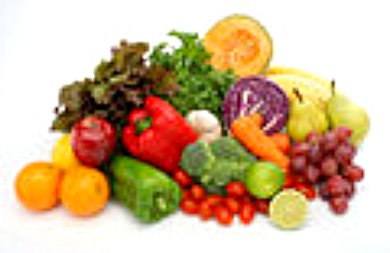|
"Anti Inflammatory Foods Are High In Antioxidants Which Are Able To Control Chronic Inflammation"
Anti inflammatory foods are not routine for most households. They do not follow the conventional food pyramid that we have been taught for so long.
It is possible to eat this way, but you might have to make a few changes because you are treating, and/or preventing inflammation.
The fact that you are eating foods that cause inflammation is probably the main contributor to your health, and whats going on inside your body. It's important to put out the fires of inflammation by eating more anti inflammatory foods, which are also anti aging foods.
If you want to be healthy you must eat to stop inflammation.
Some Anti Inflammatory Foods Are:
Choose complex carbohydrates, like multi grains, brown rice, and foods that are lower on the glycemic index.
The glycemic index ranks carbohydrates according to their effect on blood glucose levels, to help balance blood sugar, and lower insulin requirements, for diabetic control, to reduce blood pressure, and improve immune system function.
Your body needs carbohydrates for energy but what happens when you don't use the energy? Inflammation, Obesity, and Disease.
More Foods That Reduce Chronic Inflammation:
Free-range livestock, and poultry that graze in pastures build up higher levels of omega-3 fatty acids and are anti inflammatory foods.
It's difficult and not even advisable to eat all the fish you need to get enough omega 3 fatty acids, so you need to supplement with a quality omega 3 fish oil supplement that contains high amounts of EPA and DHA.
Omega 3 Fish Oil Is A Natural Anti Inflammatory.
Make sure it is from a reliable source, so you know it's fresh and not rancid before you buy it.
There are many inferior brands on the market. I just recently purchased some at my local health food store, just to see what I'd get. I was not too surprised to find, it smelled bad when I opened it, and the capsules were cloudy which indicates a low quality product, probably even contaminated. It wasn't one of the cheap brands either.
If Fish Oil Is High Quality And A Pure Product It Is Not Cloudy.
If you are currently taking an omega 3 supplement, take one capsule and put it in your freezer overnight. When you remove it, it should still be clear and not frozen. If it is cloudy and frozen,unfortunately it is not a quality product and you are not getting the inflammation protection you wanted, paid for, and need.
Learn About Omega 3 Fish OIl
Some Anti-inflammatory Herbs
Today scientists studying extracts of Boswellia are reporting that it can switch off key cell signalers and pro-inflammatory mediators known as cytokines in the inflammatory process.
Ginger suppress the pro-inflammatory molecules known as prostaglandins with few if any side effects.
Recently, however, even more exciting information is emerging that shows how ginger extract can actually inhibit or deactivate genes in our body that encode the molecules involved in chronic inflammation.
It is also known as cucurmin, it is a mild COX-2 inhibitor, but works differently from the prescription-strength drugs that can increase your risk of heart attack or stroke.
Tumeric seems to inhibit joint inflammation by preventing the production of prostaglandins and activation of inflammation- regulating genes through its effects on cell-signalling.
When taken internally, it boosts and strengthens the overall circulatory system. When applied externally, cayenne blasts circulation into that area of the body. For any injury or inflammation, cayenne is an herb that will greatly boost healing.
Tea tree oil is safe for internal and external use, although it is primarily used externally. You can use tea tree oil alone, or it can be mixed with virtually any other kind of herbal preparation. Tea tree oil is another of the best inflammation herbal remedies especially if infection is involved.
Several studies are showing fiber intake to lower your CRP levels. That's good news, it means oat bran, oat meal, prunes, and roughage of all sorts qualify as anti inflammatory foods.
Researchers aren’t yet sure exactly what role fiber plays in CRP levels, but they suspect fiber’s association with maintaining healthy intestinal flora supports anti-inflammatory and antioxidative processes.
Some doctors recommend a baby aspirin a day, which will help lower inflammation. As always talk with your doctor first. You will have a much better chance at being healthy if you make it a habit to Eat Anti Inflammatory Foods.
Search For More On Anti Inflammatory Foods Learn How to Eat To Stop Inflammation With Vitamix
|






